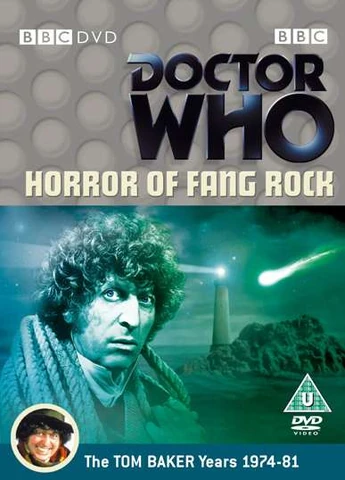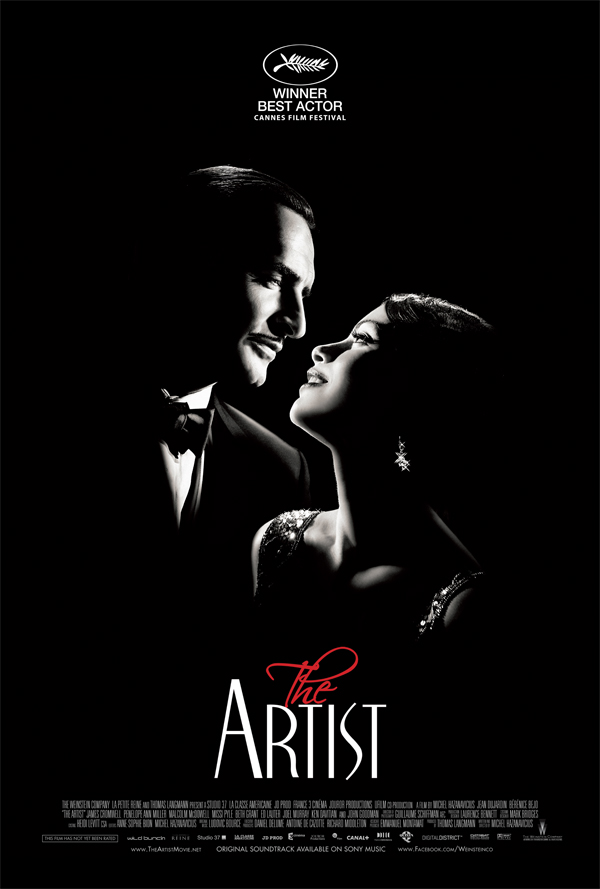Episode One is fantastic, one of the best openers of this whole period. Plunging us almost straight into the drama without a pause, the sudden effect of having the TARDIS effectively broken in mid-space, and having an aspect of the external world bleeding through, is an excellent concept, and it is portrayed very nicely. The hideous skull decal adorning the door, etching its way through a fog of electrical haze, it genuinely unsettling and nasty. Subsequently, the rest of the episode is an excellent portrayal of mood and atmosphere, an unsettling empty ship devoid of life, and the musical choices done for these bits is superb.
This is almost entirely ruined the second the glam rock pirates enter the ship. With gigantic rubber, awkward looking fish bowls on their head, ludicrously polished white suits and fluttering little capes, they are a dreadful sight, truly ridiculously images. These are meant to be space pirates for god's sake! They should be rugged, tough, brutal, dressed in black leather gear with a scar on their face. And yet, with their coloured makeup adorned on their faces and Liza Goddard's humongous puffed up 80s hairstyle, they are an embarrassment to look at. It's the invasion of the Bowie pirates, they look like they should be in a New Romantic band singing sad songs about unrequited love, not pillaging ships. The acting also leaves something to be desired, specifically Dominic Guard as Olivr, whose hammy brand of overacting is not particularly convincing (screaming "WERE ALL GOING TO DIEEEEE" while nearly breaking your voice is awful hysterical acting).
The sets themselves are pretty descent, grim grey slabs of metal going on forever, and there is even some interesting work done on the main bridge set, going up and then going down with stairs and what not. Roger Murray-Leach, of the Hincliffe era, real genius was the way he would try and incorporate a sense of scale and size to the sets. He, rightly, knew that having a flat studio surface with four walls was lethal for dramatic effect, and always tried to elevate it off the dreadful studio floor (see Planet of Evil for this). There's a half-hearted attempt at this going on in the main ship sequences, although ultimately it comes across as rather dull and boring.
Costume disaster what with the pirates notwithstanding, the Vanir are a mixed bag. Ascetically they look rather good, like hideous skinless skeleton creatures wandering around a death zone, their muscle-armour a grim reflection of the death going on inside them. Yet the hideous, awful, awful clanking and clunking sound that effects them in every scene almost entirely spoils the potential for some real gothic luridness in them. Clank, clank, clank, clank they go in every scene, and it immediately destroys the suspension of belief. Good drama is always trying to convince the watcher that the charade you are watching, whereas the abysmal sound of cheap fibreglass takes us out of it every single time (it's meant to be anti-radiation armour as well! It looks like it could barely keep out wind, yet alone radiation).
The Garn is another odd thing. Gallagher says he initially wrote it as being nearly always simply the outline of a shape with two glowing red eyes. I'm not sure how they would have communicated that on screen throughout, especially the end, but however they did it I doubt they should have done it like this. For something that (at least in the first three parts) is meant to be a terrifying thing, a pseudo-monster, it looks like it's wondered off the set of Sesame Street. A lumbering, waddling, cuddly dog thing, it is hardly convincing. And yet in some senses it is almost good, it's certainty impressive to look at, and the head movement with voice almost works. In a different setting, like, I don't know, an episode set on the planet of the dog people, it might work, but here, which demands tension, mood and dark shadows, it just doesn't work.
Still, despite these obvious and glaring negatives, there's much to be praised. The Vanir themselves, as people, are expertly conveyed, each actor managing to convey such a level of kind of strained desperation. Andrew Butt in particular, playing Valgard, is superb, a jaded, brutal warrior with dark shadows under his eyes and a three o clock stubble, groaning under the weight of his misery. Peter Benson, as Bor, is also absolutely superb. The scene where he reveals his hideous burnt face, and the oddly strained, sing-song way he repeats his lines, is genuinely unsettling and creepy. The way he mumbles and sings when dragging the metal also is a nice subtle hint at the madness settling in, like he's become Ben Gum or something. The way he causally, lackadaisically talks about the ensuring apocalypse as one would the weather on a rainy Sunday is expertly conveyed and very eerie ("It's going to blow and the big bang will happen all over again" - is there anything creepier than that line?")
Despite the sets being average, some of it actually works well. The huge engine room set conveys a sense of scope and scale not normally seen, like they've plunged themselves into some gaping void, huge areas of blacks surrounding them. It looks like they've filmed on the sides of the studio, which in this case works well. The sight too of this desperate, haggard, crazed man dragging metal to try and cover the radiation leak he knows he can barely stop is a brilliantly creepy image too. There's a kind of underlying sense of desperation and doom the episodes convey which is actually very well done. It's an incredibly bleak story, what with the shambling, shuffling nearly dead sick people left to rot. The captain set too is one of the evocative and creepy images in who, the sight of the mummified captain, left in place where he last once decades, even centuries ago when the first disaster begun, is a starling and amazing image. It recalls to mind the space jockey scene in Alien, an abandoned scene of death, hinting ominously of the future disaster to come, as it's already happened.
As noted already, the plot also deserves special praise - it's an amazing concept. In such scene, where the dead captain lies ruined before his control mechanisms, we learn that Terminus in fact created the Big Bang, but travelling all the way to the beginning of time, dumping the excess fuel which triggered the chemical reactions used to create everything. It's a terrific idea, and as Gallagher himself says, what other show would allow you the level of creative ambition to even suggest such a thing? It's very nicely teased as well, first with the idea that Terminus is at the exact centre of the universe (which technically doesn't make sense, but ah well), then the drip drip of hints of what happened the first time the engine blew (Bor's line about it happening "a long time ago"), and then the final gut punch revelation. It's marvellously well paced, and laced with menace. The twist in the Garm as well, that he's not a monster but in fact a healer, is a good one, although it's a shame the thing itself isn't better realised to really bring the twist the dramatic effectiveness it needs (the Garn already looked huggable, it's reveal as a non-threat is not that odd). The dialogue too is also sharp. Bor's aforementioned, semi-crazed babbling and warnings of the oncoming disaster is brilliant, but also the small little moments, like when Valgard talks to Olivr, recognising his fight moves as part of the same commander he trained under and wearily remember the backstabbing his received, is an excellent moment of character.
As for the extras, they shine. Mark Strichtson really is superb in the character of Turlough, a proper actor. His character is sort of like what Adric could have been if he was portrayed by even a semi-decent actor and had even a moment's thought put into his character. Every line he says appears to almost slither out the side of his oily mouth, oozing with cynicism, snark and ill-intention. He's also failry likeable too, in his kind of jaded contempt for the things around him ("YOU HAVE FAILED TO KILL THE DOCTOR" "...I haven't found him yet!" - how can we look like him?) The problem of this entire stupid arc of episodes however comes to the for. The concept of trying to kill the Doctor becomes increasingly absurd as Turlough fails, repeatedly, to kill him. It also makes the Black Guardian look increasingly stupid as he constantly threatens all manner of dreadful punishments if he fails and yet, in the end, is like "alright fair dos i'll give you another try". I mean, why? Turlough is clearly rubbish at doing this. In order to try and give him reasons not to kill the Doctor the writer is forced to come up with arbitrary reasons for him not being able to do so. In this case it involves him being shoved underground with Tegan, which, while not particularly interesting and suffering from the fact that it removes two whole characters from the main drama, actually sort of works in this context. One), it allows the main story to be about the Doctor and Nyssa, which is right for her last story, and Two) it allows them to have some bonding, important considering those two will be the together for the foreseeable future. Janet Fielding is unfortunately rendered as moaning and looking pissed off, which is quite literally the only thing her character has done or will ever do in her entire tenure on the show.
Nyssa is given a great story to go out on, making her the central focus of the episode's drama, her sickness from the diseases, her seeing first hand what the conditions of this plague ship are like, and eventually being the only one bright and clever enough to realise how to stabilise the cure, as well as manufacture unlimited supplies of Hydromel (the liquid drug the Vanir are addicted to for their survival). It's a fantastic way to send off the character, as it directly links her experience and abilities to the current situation. In helping cure the disease, using the skills she learnt on Traken, she is able to keep it's memory alive. In her lives the beauty, the wisdom and the magnificence of her dead, forgotten planet. It's beautiful and it's right. It also links directly into the main theme of the show, that the Doctor, through his actions, makes people better versions of themselves, and by distributing his companions across the universe, Susan rebuilding war torn London, Romana freeing Tharill slaves, Jo helping to save the environment, bits of him live on, parsed out in his companions.
So, as one can see, it's a decidedly mixed bag. It's hampered by really poor production qualities, yet it manages to overcome them most the time with a superb script, some excellent acting, and some genuinely effective displays of uneasy mood and atmosphere. It's a shame Stephen Gallagher didn't do more, he clearly had a brilliant and amazingly creative mind. Warrior's Gate, for my money, is an undoubted masterpiece, and although this doesn't nearly come to that's level of mystic magic, it still shows a writer allowing himself to fully embrace what's best about this show.
7/10









